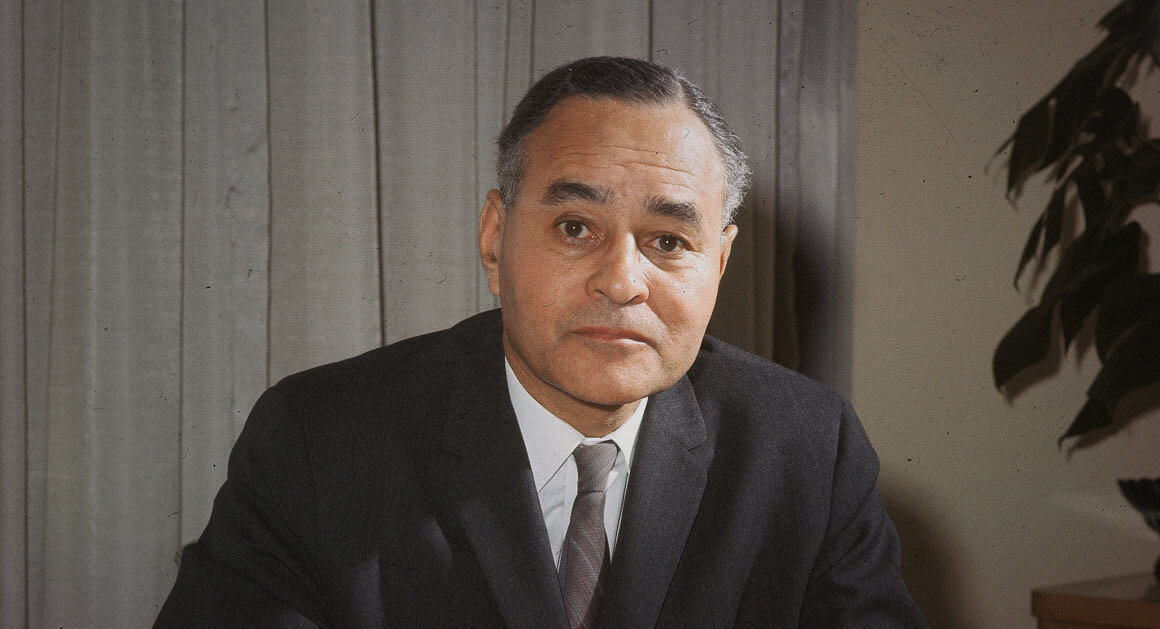Edward Bouchet
The First Black Person to Earn a PhD from an American University
Portrait of Edward Bouchet and lithograph of early Yale College campus. Courtesy of Yale University.
Edward Bouchet made history in 1876 when he became the first black American to be named a PhD physicist. He passed his education on to other blacks through a career as a science teacher at a time when black students had few avenues to such learning. But Edward was also restricted from advancing in his career, which, had he been white, held the promise of a tenured professorship at a prestigious university.
Edward Alexander Bouchet was born September 15, 1852, in New Haven, Connecticut. His father, William Bouchet, had won freedom from slavery. As an unskilled laborer, he obtained work as a janitor at Yale University (then known as Yale College). Edward’s mother was Susan Cooley Bouchet, a housewife who raised Edward and the three sisters who preceded him in birth. As a sideline, she also laundered clothes for Yale students. From a young age, the Bouchet children were instilled with Christian principles and were churchgoing. With anti-slavery sentiments running high in that period, they were also active abolitionists at a local level, and their parents stressed the importance of getting a decent education.
Despite their encouragement, however, William and Susan never dreamed that their young son, faced with the racial prejudices still prevalent in society, would one day attend Yale. The school he attended in his youth, Artisan Street Colored School, was segregated and staffed with one teacher, Sarah Wilson, who taught 30 students primary lessons. Edward was further encouraged by Sarah to pursue a higher education before he left to attend New Haven High School for two years. In 1868, when Edward was about the age of 16, he was admitted to Hopkins Grammar School, which was a private preparatory school of prestige, whose graduates often went on to Yale. There, Edward studied the classics, learning Latin and Greek, in addition to algebra, geometry, and history. He excelled at Hopkins and graduated in 1870, first in his class. With that, he was accepted to Yale, which he entered in the fall of that year.
It has long been held that Edward Bouchet was not only the first black person to attend Yale University, but the first of his people to also graduate. Yale itself attested to that supposed fact for many years, but in 2014, new information surfaced, which throws new light on that legend. Concerning this, Connecticuthistory.org states:
“Research by several scholars and writers, including some at Yale, indicated that three men thought to be white and who preceded Bouchet at the school—Moses Simon (Class of 1809), Randall Lee Gibson (Class of 1853), and Richard Henry Green (class of 1857)—at various times appear in public records as Negro, black, and mulatto.”
Edward Bouchet studied at Yale’s Physical Sloane Laboratory, here pictured as it existed between 1882 and 1931. It is now Jonathan Edwards College. In the public domain.
Whether he was the first or fourth black student to attend Yale, by all appearances he was the first to earn a doctorate degree. Thus, Edward Bouchet sits comfortably in the historical records as an important trailblazer in the field of science. Edward remained at home while he attended Yale, but his studies never suffered. He graduated in June of 1874, sixth in a class of 124. He entered a new PhD physics program at Yale after graduating. Two years later, with his graduate studies and dissertation, “Measuring Refractive Indices” behind him, Edward became the sixth person in the United States—of any ethnicity—to receive a PhD in physics. And no other black American had received a PhD in any field before him.
As qualified and educated as he was, Edward’s superior abilities were not enough to sail through the tide of racial discrimination he encountered when his search for employment began. Everywhere he turned he met with failure. Every university and college he applied to rejected him. There he was, a brilliant PhD physicist, young, capable, and eager to expend his energies in furthering his field of study, Edward was forced to teach at a segregated school for blacks, the Institute for Colored Youth (ICY) in Philadelphia. If there is a bright side in his career, he was able to teach what he loved, as the school opened up a new science program he was able to lead.
He taught at ICY for 26 years, his tenure culminating in 1902. That is the year his school, moving in lockstep to the philosophy of Booker T. Washington, dissolved the academic platform at ICY and instituted an industrial one, thus transforming the institution into a vocational school. Edward was out of a job. The next 14 years saw him teaching or sitting as an administrator at various high schools across the country. His health declined as he aged, and he was forced into retirement in 1916, which allowed him to return to New Haven. He remained in the very home he grew up in until his death at age 66 in 1918. He died unmarried and childless. A touching obituary written by a friend of Edward’s regarded him as…
“a man of keen sensibilities and unusual refinement. He was a prolific reader and was greatly interested in the history of his own people and of his native town.”
While Edward had educated the next generation of black youth in his chosen field of science, the exclusion of blacks from higher scientific education left him as the only black PhD physicist until 1918. Over four decades after he had received his doctorate in physics, Elmer Imes rose to become the second black American to do the same.
You may also be interested in:

This article appears in 45 People, Places, and Events in Black History You Should Know.
Available from Amazon.com, BN.com, and other retailers.




Mary Church Terrell was a black suffragist of the late nineteenth and early twentieth century who also advocated for racial equality.